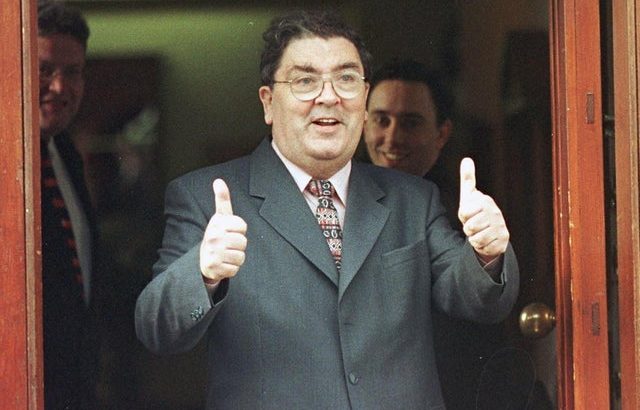I had just turned 18 when the Good Friday Agreement was signed in 1998. I was on retreat for Holy Week at the time and therefore was forbidden to listen to the radio so as not to break the pattern of the retreat.
I had the profound sense that something momentous was happening and figured that God would understand, so I listened to the radio anyway. That Holy Week was full of ups and downs. To call the peace process ‘off-on’ at that stage was an understatement. Our hopes were all dashed by the walk-outs on Holy Thursday and – not unlike the first Holy Thursday – all seemed lost.
But as night gave way to daylight, a deal emerged and in the afternoon the leaders were ready to sign the accord.
Mixed emotions
It was with mixed emotions that I voted for the agreement some weeks later. The first time I was entitled to vote. I say mixed emotions not because I was in any doubt about what way to vote, I wasn’t.
But my joy at the potential of the agreement was tempered by sadness at the lives that had been lost and the thousands of people who had been maimed during the conflict we euphemistically call ‘the Troubles’.
Growing up in the North in the 1980s, my life and the lives of my contemporaries was characterised by the wastefulness of it all.
He did not denounce violence because it was counterproductive…he rejected it because it was morally wrong”
The wasted lives, the lost opportunities, the missed chances, the shattered dreams. Thousands of people left the North and never returned. In the city of Belfast with the largest church attendance in western Europe, we had walls to keep Christians apart from other Christians. God made us neighbours to one another, and we weren’t good neighbours.
The Good Friday Agreement represented such potential and John Hume was the father of that historic accord. Even as a very young child, I watched him on television and was impressed by his moral courage.
He was no political cynic. He did not denounce violence because it was counterproductive (which it was), he rejected it because it was morally wrong. He was unshakable in his conviction that the most important thing was to get the killing to stop. And he eventually convinced the provisional IRA of this fact. While they may never have gone as far as Mr Hume in reflecting on the immoral nature of violence, they did accept that it was not a credible way forward.
If that was his only achievement, it would surely have been enough to earn him a place in the pantheon of the greats. But Mr Hume went on to see his long-cherished values enshrined in the Good Friday Agreement.
His tireless efforts ensured that my generation was the first in the North that genuinely held our destiny in our own hands. After decades of discrimination and prejudice, he showed young Catholics that they could have a place in building a shared future together.
Dividing walls
The home we are building together in the North is far from perfect, and there are tragically more dividing walls in Belfast than at the height of the conflict. But things are moving forward: young people are finding chances and opportunities and not fleeing elsewhere. Relationships between the communities are tentative but growing.
Any post-conflict society takes time to normalise, and this is as true of the North as anywhere else that has suffered such immense trauma. But a new dawn is emerging and more than any other person, we have John Hume to thank for that legacy.
May he rejoice now in that place where Lazarus is poor no longer.


 Michael Kelly
Michael Kelly
